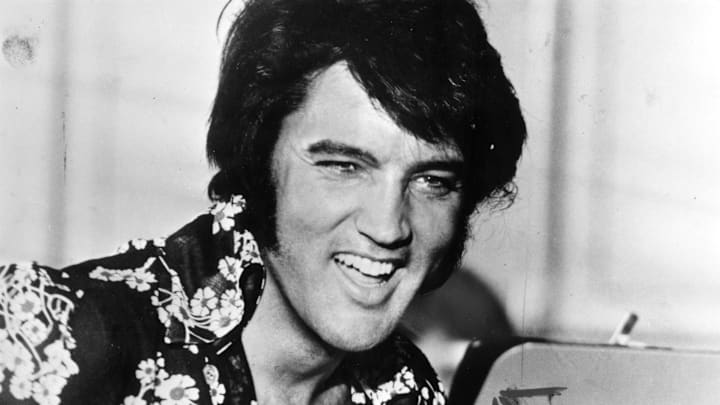Well-known for being a music icon, Elvis Presley also happened to be an in-demand actor in the late 1950s and throughout the 1960s. Idolizing the likes of Marlon Brando and James Dean, Presley wanted to be considered a serious actor. Unfortunately, he really never got that chance.
1958's King Creole was his closest shot, and his favorite film he ever starred in. Presley was a singer after all and a great one. Fans wanted to hear him sing in his movies and his films eventually found a formula. He would sing multiple tracks in each movie, and the soundtrack albums would be massive successes.
Over time, however, some of Presley's films became nearly forgettable, and the soundtracks got embarrassing. In one film, he even had to sing "Old MacDonald." By the late 1960s, Elvis was understandably drained, tired, and concerned about his future. He wanted to leave the film business and return to his roots. Amazing music.
There was no more fitting place to revitalize his music career than Memphis, Tennessee. Elvis would come home and create some of the most memorable music of his career.
How Elvis Presley's music career was saved
It all started with the 1968 Comeback Special. Elvis Presley, after over a decade of making films, was ready to conquer the music business again. He wanted to create great songs, hits, and return to performing live. The 1968 Comeback Special, which was a tremendous success, gave Elvis the confidence he needed to focus on making quality music. Songs such as "If I Can Dream" and "Memories" stemmed from the special and were a far cry from the forgettable soundtrack tunes.
Elvis's 1969 Memphis Recordings
In January 1969, Elvis returned to his hometown of Memphis, Tennessee, and decided to work with renowned local producer, Chips Moman, at American Sound Studios. Presley would record forty songs within multiple sessions, according to the Memphis Music Hall of Fame.
Songs Presley recorded under the guidance of Moman include "Suspicious Minds", "Kentucky Rain", and "In The Ghetto." These songs changed his career forever and proved he was still a dominant and relevant artist in contemporary music. "Suspicious Minds" would become Elvis's final No. 1 hit on the Billboard Hot 100.
Presley, who did have hits with some film tracks such as the iconic "Can't Help Falling in Love" from 1961's Blue Hawaii, was able to reclaim the top of the charts again and compete with artists such as the Beatles, Rolling Stones, and Motown's esteemed talent.
Additional songs Elvis recorded at American Sound Studios that are noteworthy include "Any Day Now", "Wearin' That Loved On Look", "Don't Cry Daddy", and "Power of My Love."
Las Vegas and Touring
Once Elvis had new, exciting material to work with, he decided to prioritize live performances again and began a multi-year residency at the Hilton/International Hotel. All of his concerts at the International Hotel were sold out and his star power was fully demonstrated. Elvis's 1970 Vegas performances were immortalized in the MGM documentary film, Elvis: That's The Way It Is, which is a beloved fan favorite.
1970s Music
Elvis's American Sound Studios success in 1969 ultimately led the way to his incredible 1970s catalog, including songs such as "Burning Love", "An American Trilogy", "Just Pretend", and "I've Lost You." Presley would continue to record great material demonstrating his vocal gifts until his untimely passing in August 1977.
